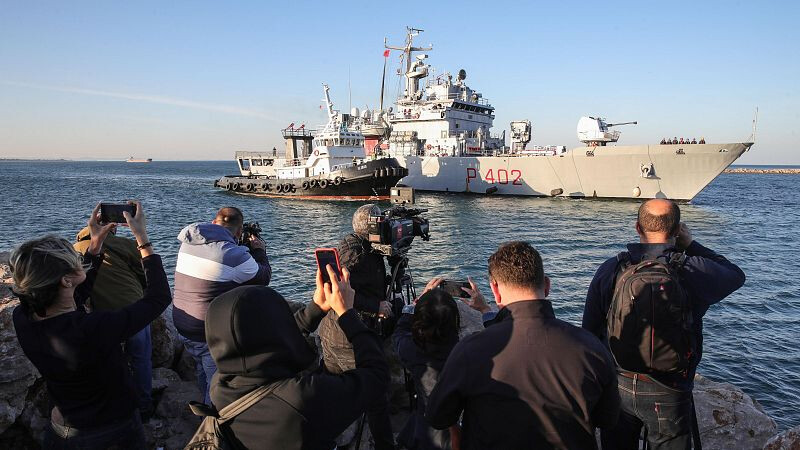
LUXEMBOURG - The Italian government argued before the European Union's highest court on Tuesday that its plan to transfer migrants to asylum processing centers in Albania is in full compliance with EU and human rights laws.
The European Court of Justice has fast-tracked two cases brought by Bangladeshi nationals whose asylum applications were rejected after a single remote hearing from a detention facility in Albania.
The two men appealed the decision in a Rome court, which then asked the Luxembourg-based court to clarify EU law.
Under a 2023 agreement between Italy and Albania, up to 3,000 male migrants would be housed in Albania while their asylum applications are processed. The two specially built detention centers, which will cost Rome 670 million euros ($730 million) over five years, will operate under Italian jurisdiction, with Albanian guards handling external security.
The two men were among the first group of migrants to arrive in Albania in October, but the facilities have remained largely empty as the plan has been mired in legal disputes. The Italian Prime Minister Giorgia Meloni's government has pledged to reactivate the two centers.
Lawyers for the men, whose names are being withheld for security reasons, argued that Albania does not qualify as a "safe third country" as required by EU law and that the process violates their rights.
"It is not possible to designate a third country as safe if certain categories of people cannot be considered safe in that country," lawyer Dario Belluccio told the judges, pointing to the lack of protection for LGBTQ+ individuals in Albania.
Albania does not allow same-sex marriage, and the United Nations has found that LGBTQ+ people face discrimination and violence in the country.
"The condition of safety does not have to be met equally for all individuals," Lorenzo D'Ascia told the court on behalf of the Italian state.
Under the agreement, migrants retain their right under international and EU law to seek asylum in Italy, and the government says their rights will be protected while on Albanian soil.
The court's advocate general will provide non-binding legal advice on the case in April, and a ruling is expected before the summer.
[Copyright (c) Global Economic Times. All Rights Reserved.]






























